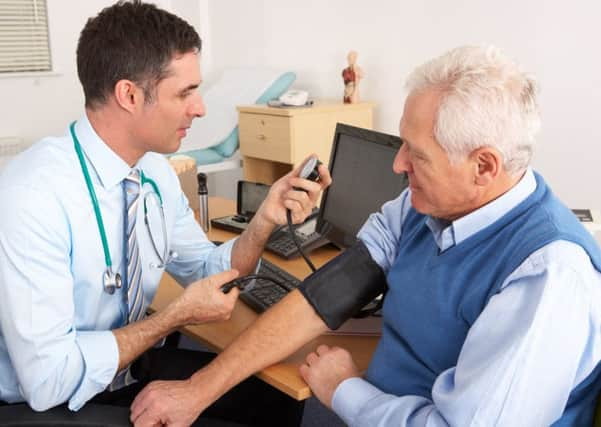Number of GP practices down and list sizes rise in past decade


The Scottish Government has presided over a drop in the number of GP practices and an increase in the average medical surgery list size in the past decade. This was described as a “disaster” for health services by the Tories who highlighted official figures referenced in a report by public spending watchdog Audit Scotland earlier this week.
The number of GP practices nationwide dropped 6 per cent from 1,027 in 2007 to 963 in 2016. In the same period practice lists – the number of patients registered with a GP – rose 12 per cent on average from 5,280 to 5,880.
Advertisement
Hide AdAdvertisement
Hide AdThe statistics also show the number of GPs working in Scotland has remained at around 4,900 since 2008 but the Tories have raised concerns up to 3,000 doctors may have left Scotland to work abroad in recent years.
The Audit Scotland report found Scotland’s health is “not improving” and highlighted “significant challenges” in general practice, including recruiting and retaining GPs and low morale, as well as increasing waiting times and missed performance targets across the health service.
Auditors said reforms such as integrating health and social care are indicating progress but more fundamental change in areas such as workforce planning and funding is needed to maintain care standards in the face of rising demand and costs.
Scottish Conservative health spokesman Miles Briggs said: “These figures demonstrate the total failure on health by the Scottish Government but tragically signal further disaster for primary care, the fundamental building block of our health service.
“The simple fact is that if our GPs continue to be driven away from Scotland’s health service practice lists will continue to grow and patients will have to wait longer for essential treatment.
“It is no surprise the public health isn’t improving and waiting time targets are being missed.”
He repeated calls to the Scottish Government to commit 11 per cent of all NHS spending directly to GP practices, a key demand of the party’s Save our Surgeries campaign which was launched on Thursday.
Dr Miles Mack, chair of RCGP Scotland, said: “Our Put patients first: Back general practice campaign, calling for 11 per cent of NHS Scotland funding to be allocated specifically to general practice, has been hugely supported by the public since its launch.
Advertisement
Hide AdAdvertisement
Hide Ad“That is what doctors have said is needed and the public agree.”
A BMA survey of GPs in December 2016 found that 70 per cent felt they experienced significant work-related stress and 15 per cent felt their stress was unmanageable.
A Scottish Government spokesperson: “Overall, in the last decade the number of NHS staff has increased by around 12,000 to record levels, while we have also delivered record high funding for the health service. The overall number of GPs has increased under this government by 6.9 per cent and we have more GPs per head of population in Scotland than any other part of the UK.”